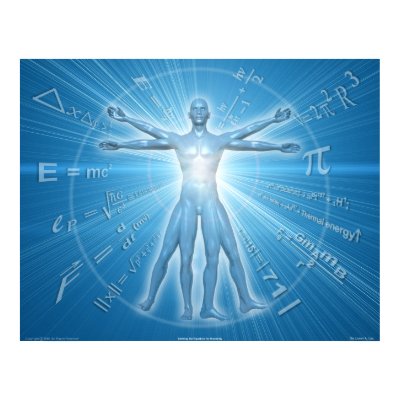Coming into this post, I realized I’ve talked a lot about literary criticism and video games, and I’ve promised to apply the former to the latter, but I have yet to actually do so. Unfortunately, I’m going to put that off yet again to talk about something related and important, but still not game criticism. This is because I want to make sure all my cards are on the table: what I’m doing, where I’m coming from, and why this all matters. The last is the final piece in the puzzle and the subject of this post.
 I’ve mentioned that I’ve taken a literary theory class covering the basics of how we approach literary criticism. The last day, we had a class-wide debate over whether college level humanities classes should exist, to question why we should be doing what we did in that class. I ended up on the side arguing that they shouldn’t, and due to my history in debate (I was a state champion in high school debate), I got the class truly riled up by my arguments. In general, I speak firmly and without apologizing regardless of the subject, and when I’m also presenting arguments in a semi-formal debate, this effect is amplified, even if I’m presenting the side I disagree with. So despite the fact that I had been put on this side by the professor and I was taking an English class that gave me no credit towards my major or graduation, they felt extremely threatened by the arguments.
I’ve mentioned that I’ve taken a literary theory class covering the basics of how we approach literary criticism. The last day, we had a class-wide debate over whether college level humanities classes should exist, to question why we should be doing what we did in that class. I ended up on the side arguing that they shouldn’t, and due to my history in debate (I was a state champion in high school debate), I got the class truly riled up by my arguments. In general, I speak firmly and without apologizing regardless of the subject, and when I’m also presenting arguments in a semi-formal debate, this effect is amplified, even if I’m presenting the side I disagree with. So despite the fact that I had been put on this side by the professor and I was taking an English class that gave me no credit towards my major or graduation, they felt extremely threatened by the arguments.I think that’s because the answer to the question doesn’t come as easily as any of us would wish. What people learn in English doesn’t save lives with medicine, build bridges or buildings, or any other practically useful skill. But these classes should exist, and what they teach is useful to everyone, not just lovers of the esoteric and academic.
These classes teach how to find meaning in life and understand humanity (thus “humanities”). More specific to those classes I focus on: music, literature, film, etc., these things teach us how to find meaning in art and, to a varying extent, how to forge meaning into art. This meaning we find in art makes us stronger people by helping us understand ourselves more completely. Within literature specifically, it helps us empathize with people in a vastly different position than our own. We find that we’re not so different from those we thought different, and we find that other people in the world have to face challenges we can’t imagine. It can give us an idea, however incomplete, of what others go through without having to experience it ourselves. And this allows us to empathize with, appreciate, and understand others when we’d otherwise remain ignorant.
All throughout history, we see that these things make society better. Bigotry struggles to survive if you know someone who is black or gay. It struggles even more if you’ve walked in the shoes of someone you once hated, as a video game allows a player to do. Having a vicarious experience as a refugee in a war-torn country or as a slave through literature also helps you to understand the injustices that exist in such places. A different perspective can even reveal flaws within yourself, where you otherwise wouldn’t have seen it.
 These things we gain from the experiences offered by art and literature make us better people who are more able to tackle the problems of the world. Far from being something that should be left by the way-side, learning how to find meaning in art should be something everyone learns. Not everyone needs to be a film buff or a bookworm, but everyone should be able to walk away from a book, movie, or video game having learned something. About themselves, about the world, about their place in the world. We all have an opportunity to make something fun into something both enriching and often, more fun than it was before.
These things we gain from the experiences offered by art and literature make us better people who are more able to tackle the problems of the world. Far from being something that should be left by the way-side, learning how to find meaning in art should be something everyone learns. Not everyone needs to be a film buff or a bookworm, but everyone should be able to walk away from a book, movie, or video game having learned something. About themselves, about the world, about their place in the world. We all have an opportunity to make something fun into something both enriching and often, more fun than it was before.That’s what makes this worth it.
Everyone playing modern video games should be taking much more than a few hours of fun from the experience. There have been literary giants in the past that changed the world, and in the future, there will be video games that will change the world. That time has yet to come, but for now, I can demonstrate how video games can enrich our understanding of ourselves and our world, so that time may come sooner. Learning from a video game or any kind of literature doesn’t require an English degree. It just takes a willingness to learn, a willingness to think, and a bit of direction on how to get started. I hope I can provide the last, and the ripples of game-based understanding can become the waves that can change the world for the better.


I think this is a really interesting post. I have never really given any thought to the potential video games might have to have an effect akin to that which literature does. It will be interesting to see if and how video games make the jump from something that is purely entertainment based to something more thoughtful and intellectually stimulating.
ReplyDeleteWhat a great post! I too am now curious to see if your prediction will ever come true. Based on the ever increasing popularity of video games, I suspect that it is quite possible...
ReplyDelete